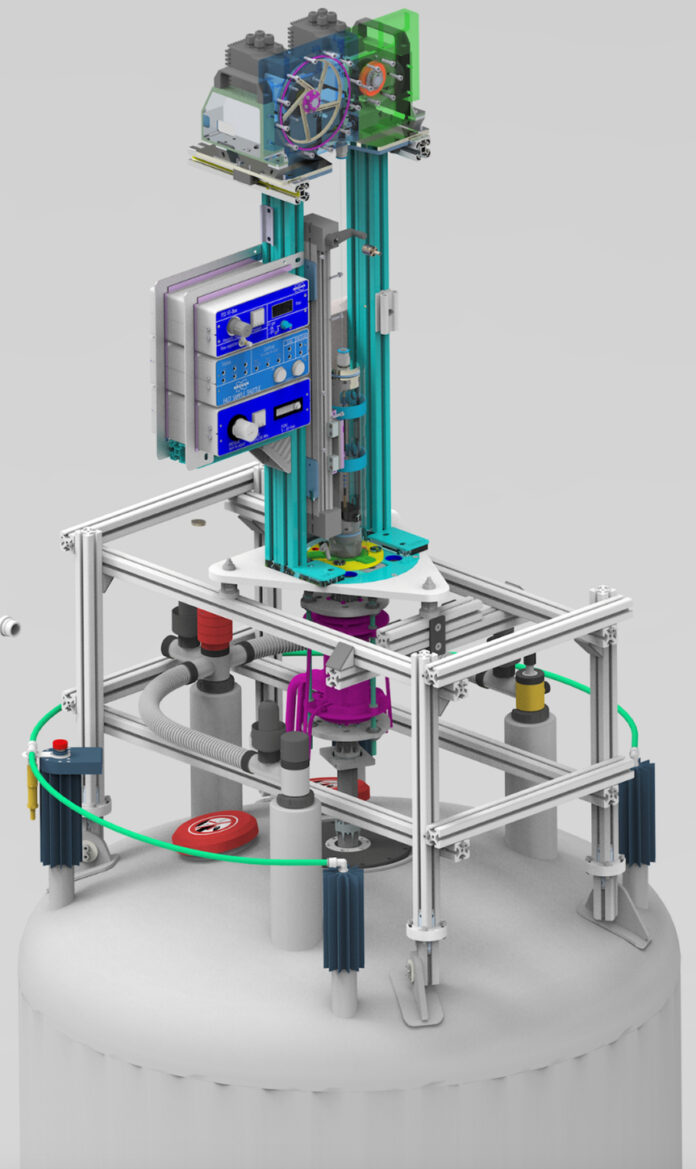BILLERICA, Mass.– Bruker Corporation (Nasdaq: BRKR) announced new orders for advanced Nuclear Magnetic Resonance (NMR) systems from the New York Structural Biology Center (NYSBC), the University of Delaware, and Northwestern University. Supported by grants from the National Institutes of Health (NIH) and the National Science Foundation (NSF), the instrumentation will drive scientific breakthroughs across structural biology, drug discovery, disease research, and materials science.
The New York Structural Biology Center has ordered the first NIH-funded Multifield NMR Relaxometry System in North America. Serving a consortium of nine institutions and the national community through the NIH-funded Center on Macromolecular Dynamics by NMR spectroscopy, the system integrates a fast NMR sample shuttle, magnetic tunnel, and electromagnetic field cycling coil on a 700 MHz superconducting magnet.
“This novel NMR Relaxometry system is a technological breakthrough that enables, for the very first time, measurements of spin-lattice relaxation rate constants across a wide field range in proteins and nucleic acids,” said Arthur G. Palmer, Professor of Biochemistry and Molecular Biophysics at Columbia University and Director of NMR Spectroscopy at NYSBC. “This opens new time regimes for studying molecular dynamics and supports research into fundamental biological processes, disease mechanisms, and drug discovery.”
At the University of Delaware, the Department of Chemistry and Biochemistry has ordered a 600 MHz Dynamic Nuclear Polarization (DNP) NMR spectrometer, funded by the NSF Major Research Instrumentation (MRI) program. The instrument will serve more than 25 research groups at Delaware and 12 partner institutions, supporting studies ranging from disease mechanisms to advanced materials and sustainable technologies.
“This new DNP NMR system will open up avenues of discovery for us not possible with our existing instrumentation,” said Professor Tatyana Polenova of the University of Delaware. “It will impact multiple fields, from structural biology to materials science, and provide transformative training opportunities for students and collaborators.”
Northwestern University’s Integrated Molecular Structure Education and Research Center (IMSERC) has ordered an 800 MHz NMR spectrometer. The system will support over 15 NIH-funded research groups and the Chicago Biomedical Consortium, enabling advanced biomolecular research in drug discovery, protein-ligand interactions, neurodegenerative disease, regenerative medicine, and materials development.
“I expect our new 800 MHz NMR spectrometer to transform our ability to conduct high-resolution biomolecular studies and accelerate discoveries in drug development, neurodegenerative disease, and regenerative medicine,” said Dr. Joshua Ziarek, Associate Professor of Pharmacology at Northwestern University Feinberg School of Medicine. “By making state-of-the-art NMR accessible locally, we are positioning Northwestern as a regional hub for high-field NMR and supporting the next generation of scientific leaders.”
The combined value of the three federally funded NMR orders is approximately $10 million, with delivery and installation expected in 2026.


